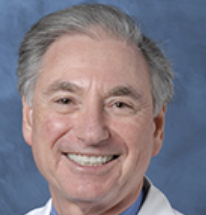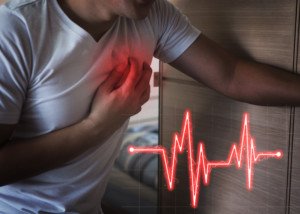A cardiologist explains why eating can cause your heart to beat fast.
Ever experience a fast heartbeat soon after eating?
There is a specific reason for this.
Fast Heart Rate After Eating
“This is normal, assuming it is not overly fast or occurring with exertion right after eating,” says Robert M. Davidson, MD, a cardiologist with SignatureMD.
“The blood volume is shifted to the intestine after eating, and can result in a faster heartbeat, especially if you are somewhat dehydrated.
“However, it should normally be only slightly faster than normal. If it is a great deal faster, it might be due to an abnormal heart rhythm.”
Eating raises the body’s energy demands. Your metabolism is actually faster after you’ve eaten.
This doesn’t mean that if you want to lose weight, you should eat a lot to speed up your metabolism.
But anything that increases the body’s energy demands is, not surprisingly, going to speed up the heart rate.
The body must work to process incoming food. This is why you should not eat a full meal before exercising, because the body’s energy will be focused on metabolizing what you just ate.
The best time to eat a full meal is AFTER intense exercise, when the metabolism is accelerated.
Next time you find that your heart rate is fast after eating — but not abnormally fast — consider this a normal reaction to eating.

Dr. Davidson is with the Division of Cardiology at Cedars-Sinai Medical Center, Los Angeles, and has been practicing for 30+ years. Areas of specialty include coronary artery disease, heart attack and palpitations.
 Lorra Garrick has been covering medical, fitness and cybersecurity topics for many years, having written thousands of articles for print magazines and websites, including as a ghostwriter. She’s also a former ACE-certified personal trainer.
Lorra Garrick has been covering medical, fitness and cybersecurity topics for many years, having written thousands of articles for print magazines and websites, including as a ghostwriter. She’s also a former ACE-certified personal trainer.
.
Top image: ©Lorra Garrick
Heart Rate Over 100 a Few Hours After Intense Exercise Normal?
Sudden Fast Heartbeat when Turning to the Side in Bed: Causes










































